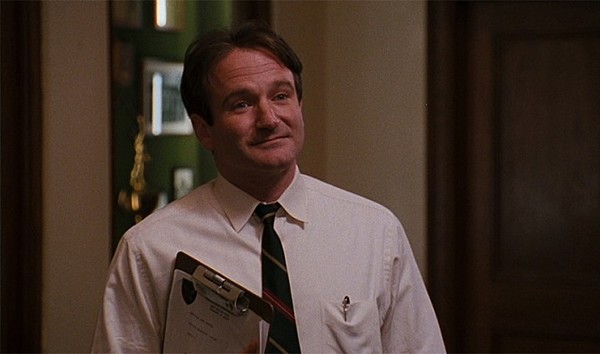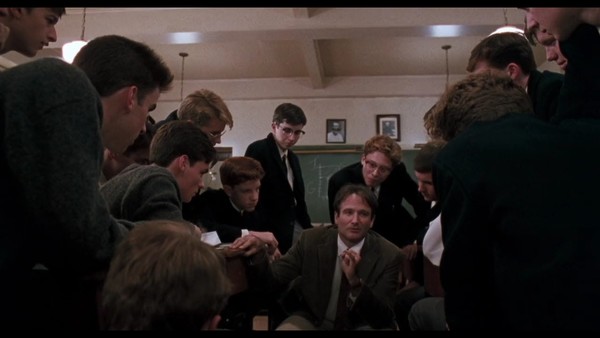
Have you heard of the phrase ‘Carpe Diem’? ‘Carpe Diem’ is a quote made famous from the movie <Dead Poets Society>, which means ‘seize the day’. Although <Dead Poets Society> was released in 1989, even after 30 years, it is still considered as a masterpiece to many people today. Why does this film still appeal to many people despite the march of time? Perhaps because it contains a story that our times today want to hear. <Dead Poets Society> suggests to us a way of what we should really care about in our lives, and how to live our lives. Are you living a true life? If you are wandering around aimlessly, I encourage you to watch this movie. Let’s take Mr. Keating’s class and think for ourselves about what we should learn.
Synopsis
The Welton Academy is a prestigious school in the United States, founded in 1859. Called ‘Hell-ton’ by the students, its four pillars are tradition, honor, discipline, and excellence. Students in Welton study hard to go to IVY league colleges to satisfy their parents’ expectations. At the opening ceremony of a new semester, John Keating is appointed as a new English teacher. Keating, who also says he has graduated ‘Hell-ton’, teaches what is important in living life, not bound by textbooks or classrooms. At first, students find Keating’s unconventional and unfamiliar class strange, but gradually are fascinated by it and start to call him ‘Captain’. Students find out the existence of the club the ‘Dead Poets Society’ on Keating’s old annual. It was a gathering of students in old Indian cave taking turns reading from Thoreau, Whitman, Shelley, and other famous old writers and poets. Some even reading their own verses. Students then sneak out of their dormitory at night and gather in a cave in the forest to read poetry and share their thoughts. With Keating’s lessons, students boldly do things they would never have done before, resulting in winning over love, or performing on a stage against their father’s wishes.
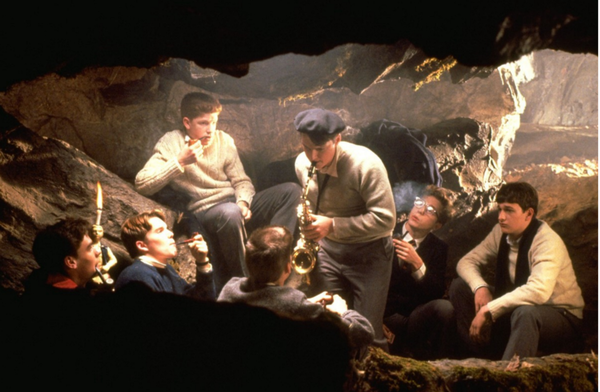
Carpe Diem, ‘Seize the Day’
Keating takes his students to the hall in his first class where pictures of the graduates are displayed. He says that everyone has walked past the pictures many times, but they haven’t really looked at them. Keating lets a student open a book and read the following passage. “Gather ye rose-buds while ye may, old time is still a-flying, and this same flower that smiles today, tomorrow will be dying.” And he tells students about ‘Carpe Diem’. ‘Carpe Diem’ is a Latin expression for ‘seize the day’, literally meaning ‘capture the moment’. As Keating says, each and every one of us will one day going to stop breathing, turn cold, and die. Faces from the past on the pictures would once have lived passionate lives and studied hard for their future. However, they are now “fertilizing daffodils.” The faces seem to be telling us to live in the present, like a spark you won’t regret.
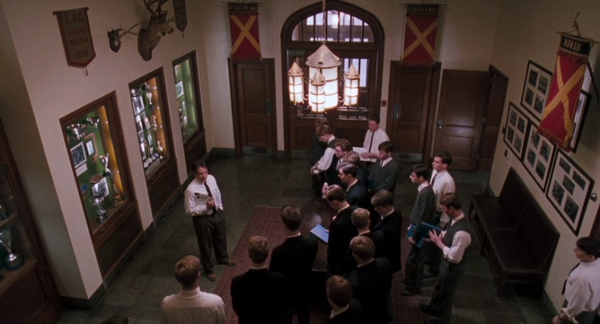
What We Stay Alive for
Dr. J. Evans Pritchard, a fictional author of the book “Understanding Poetry” claims that to fully understand poetry, we must first be fluent with its meter, rhyme, and figures of speech. He then provides a method of calculating the greatness of a poem according to perfection and the importance of it. However, Keating calls the introduction of the book “excrement” and tells students to rip out the entire page. He then says poetry is not “American Bandstand” and is not something that can be measured. And he says “Now in my class, you will learn to think for yourselves again.” Keating huddles up the students and says, “We don’t read and write poetry because it’s cute. We read and write poetry because we are members of the human race. And the human race is filled with passion. And medicine, law, business, engineering, these are noble pursuits and necessary to sustain life. But poetry, beauty, romance, love, these are what we stay alive for.”
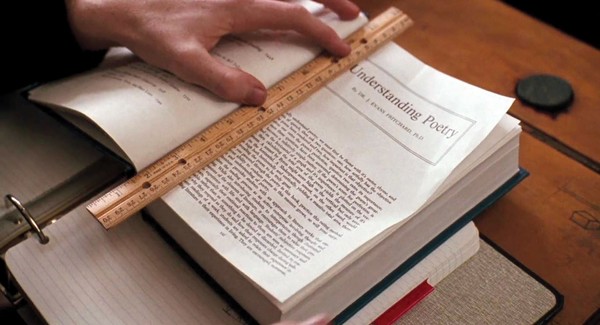
Keating tells students the reason they learn poetry, saying that words and ideas can change the world. As Keating told the students, students today might also think that 19th century literature has nothing to do with going to medical school. They might think it’s just a tool to get into a university. Indeed, Literature, History, and Philosophy has never been as undervalued as now. In Korea, there is a word “Moon Sa Chul”, which is the first syllable of each name of the studies in Korean, ridiculed as the most difficult departments from which to get a job. And studies of liberal arts are regarded as unpractical. However, as Keating said, these are what we stay alive for. We enjoy poetry and philosophy because we are “human race full of passion.” We should capture the beauty in it. Keating’s teachings allow us to rethink the value of pure learning and what is commonly treated as ‘sensitivity’ in our society today.
Walk at Your Pace
Keating takes the students out to the courtyard and makes three students walk around. At first, all three students walked at their own style and speeds. But they began to walk identical with the rhythm of the claps made by other students watching. Keating stops them and says, “I brought them up here to illustrate the point of conformity: the difficulty in maintaining your own beliefs in the face of others. Now, those of you I see the look in your eyes like, ‘I would’ve walked differently.’ Well, ask yourselves why you were clapping.” And saying that you must trust that your beliefs are unique, even though others may think them odd or unpopular. He then quotes Robert Frost. “Two roads diverged in a wood and I, I took the one less traveled by, and that has made all the difference.” Keating then tells students to walk in their own stride. Whether it is proud or silly, choose both direction and pace on their own.
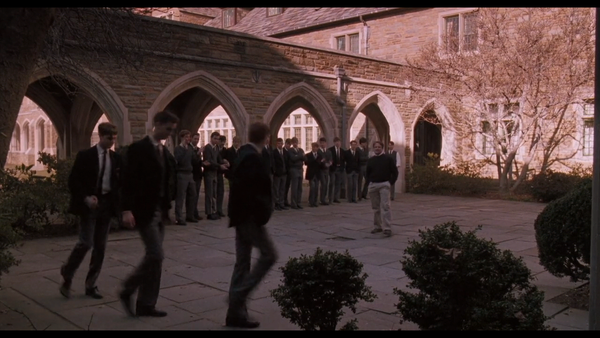
Keating’s teaching to walk on your style and “swim against the stream” is sensational. What about people today? Are they walking in their own stride? There is an implicit life plan in our society. University at 20, employment at 25, marriage at 30. And those who fail to fit, or are late, feel anxious. They feel that they’re falling behind, and even think they’re living wrong. Some people, on the other hand, hesitate to do what they really want because they are worried people might think them peculiar or too conspicuous. However, we should no longer be bound by the framework set by society or other people. Some people enter college for their dreams at the age of 30, and some people shine in their fields at 60. If we can’t walk as we want, what in the world do we live for? There is nothing fast or late in life. You just have to live in your own pace.
<Dead Poets Society> shows Keating’s classes and how the students change was influenced by Keating. It delivers a story about the meaning of life visually easy to understand. In addition, this film offers a chance to reflect on education in our society. Whether we are teaching students dreams or why we live and what we live for as humans. Our society should teach that there is something more important than what’s in our textbooks. Through Keating’s lessons, what have you learned? Ancient Greek philosopher Socrates said, “The unexamined life is not worth living.” Think about your life and examine it closely. And remember that you can make your life extraordinary. To quote Keating one final time, “The powerful play goes on and you may contribute a verse. What will your verse be?”
